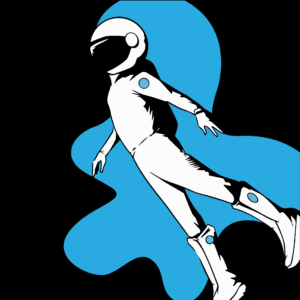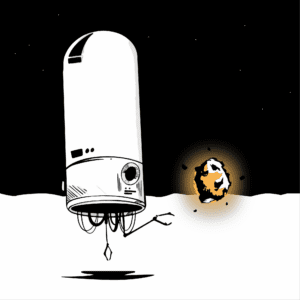TL;DR: AI’s rapid advancement poses new challenges. Essential skills for the AI economy include AI literacy, ethics, and human-AI collaboration. Organizations and individuals need to proactively develop these skills to align with the demands of the AI economy. Read last week’s post here.




At this point, I wouldn’t be surprised if you’re already using some form of AI technology on a daily basis in your personal or professional life. Nearly every week, a new AI tool is released that can boost our productivity and improve our work.
But with the accelerated advancement of AI comes a slew of new challenges and implications for our future.
Last week, we discussed how the rapid evolution of AI would impact the core skills we’ve come to rely on over the previous three decades in the knowledge and digital economy. And with so many of those core competencies now called into question, what areas should we prioritize as we go forward?
“What essential skills will we
need in the AI economy?”
In other words: what essential skills will we need to flourish in the new AI economy?
I don’t have a crystal ball, but here is what I think will be the most important.




AI Literacy
Understanding the fundamentals of AI technology will be a critical starting point for both individuals and organizations. This means constantly updating yourself on AI’s evolving capabilities and applications, as well as familiarizing yourself with core concepts that underlie these tools – such as machine learning, big data, model training, and so on.
AI Ethics and Responsibility
Looking at AI ethics and responsibility from an organizational perspective, it’s crucial to explore how AI will affect not only the company’s products or services but also internal relationships and team dynamics. We must recognize that these systems are currently trained on biased data sets; therefore, they often produce biased responses. Educating our teams on these potential biases and inaccuracies is important as we integrate these tools into our daily work.
“We’re in uncharted waters,
and we must tread carefully.”
There are also much broader concerns pertaining to AI ethics and responsibility. Many have been pushing back on AI development, with tens of thousands signing an open letter to slow down the training of more powerful AI systems. Another report recently released about a top-level engineer at Google who expressed concern about the dangers of the AI chatbot he is helping to create.
We have entered uncharted waters, and we must tread carefully.
Data Management and Privacy
As organizations train AI systems on specific data sets to prompt deeper analysis, they must securely manage data to protect user privacy and confidential company information. Who can access this data to train the system, who will have access to use the system itself, and where will the system be hosted — these are all questions companies must consider from a data management and privacy perspective.


Human-AI Collaboration
On an individual level, we must ask ourselves what our core skills are and how AI tools can complement them. Keeping up-to-date with the latest AI tools and getting creative with how we utilize them to accelerate our productivity and improve our output will be a major skill as we look ahead.
AI System Design and Development
The number of applications designed with AI support will grow exponentially, highlighting the importance of people who can design and develop these large language models and AI systems. Even becoming proficient with key programming languages like Python will have short-term and long-term benefits, allowing you to interface with existing APIs to create customized systems that enhance AI collaboration. Programming will become a real superpower, especially if you’re in a technology-oriented space.
AI-Driven Decision-Making
As AI systems become more complex and intricate, their ability to generate actionable insights will increase as well. Going forward, combining and utilizing the right AI tools to generate these insights and draw conclusions from them will be an essential skill.
“Many of the roles we
fill will be transformed.”
Change Management and Adaptability
The disruption that will take place as AI systems become more integrated within organizations will be significant. Leadership must be able to manage this change and help their teams adapt to new skill sets, new collaboration methods, new organizational structures, and so on. Many of the roles we currently fill will be transformed and rescaled — adapting will be vital for success.
AI-Enhanced Creativity and Innovation
Regarding creative work, we already see potent tools that can generate high-quality writing and images. Naturally, these tools will continue to reach other creative domains like video, animation, and music to the same effect. And with the help of these tools as AI collaborators, the creative process will accelerate and transform; There will likely be less time spent on ideation and labor and more time spent on art direction and editorial decision-making.
AI Policy and Regulation
It’s absolutely critical for organizations to understand policies and regulations surrounding AI systems. What are the legal implications of using these tools? What are the creator’s rights? These are just a few of the many questions companies must consider when developing internal policies and regulatory frameworks.




When we take a closer look, there is quite a departure from the skill sets of the knowledge and digital economy we previously discussed.
And I think there is a major opportunity here, from both an organizational and individual perspective, to proactively develop our skill sets so they align with what the AI economy will demand.
We have a choice to make:
Either we self-initiate this disruption and get ahead, or we wait for AI to inevitably cause disruption for us.
That’s all for this week.


